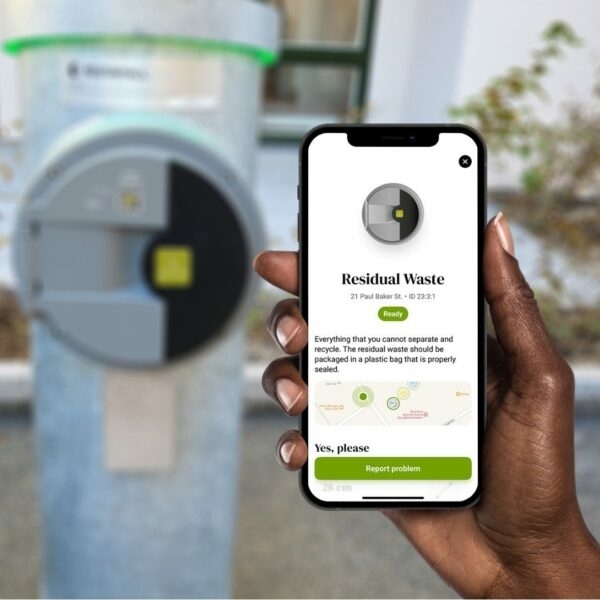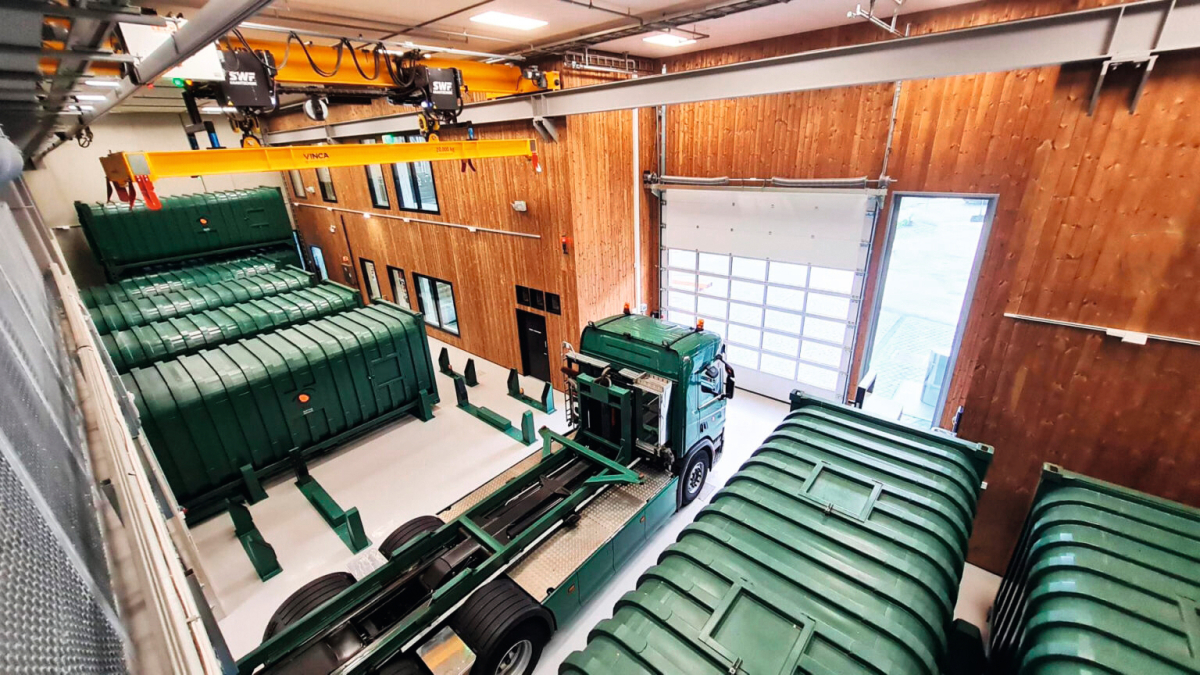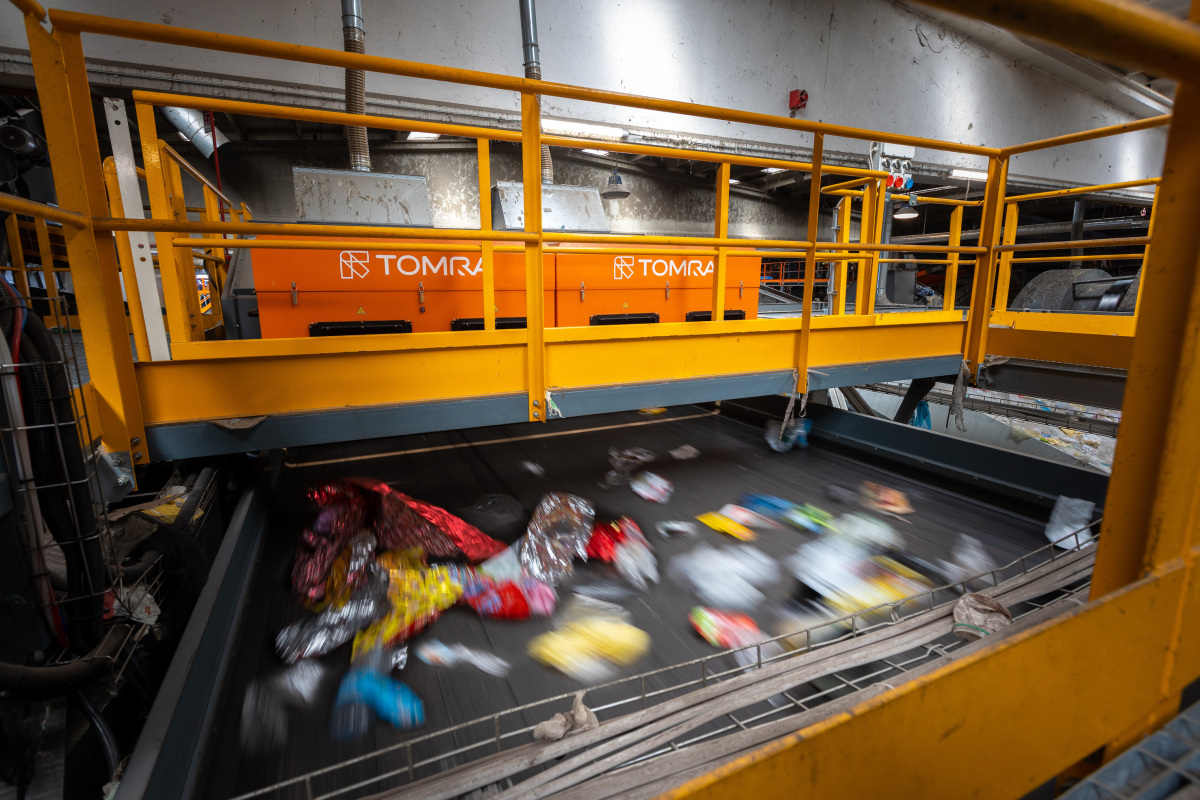Successful results from the “Reduce, Reuse, Recycle” Project in Stockholm Royal Seaport
27.11.2024The Reduce, Reuse, Recycle – Stockholm Royal Seaport project – an initiative focused on enhancing recycling and waste management in Stockholm’s Royal Seaport (Norra Djurgårdsstaden) – has achieved significant outcomes during its second phase. This project is realised through the Envac ReFlow service, which digitalises and visualises pneumatic waste collection systems. It assists residents in reducing residual waste and improving recycling. Envac ReFlow also offers additional waste management functions, such as error reporting for disposal chutes, self-healing waste inlets, guides to environmental rooms and recycling facilities, tips and much more.
 ReFlow features
ReFlow features
© Envac
The results indicate that residents in the Royal Seaport have improved their waste sorting, and the project’s initiatives have likely contributed to better waste separation. This improvement leads to reduced emissions from waste incineration and an increased volume of recycled material, as nearly all fossil emissions in Stockholm’s energy system stem from the plastic content in residual waste.
The goal was to engage 25 % of households in the area, and so far, 1044 households, or 35 %, have joined ReFlow.
The results with ReFlow
A comprehensive survey conducted among ReFlow users in July and August 2024 revealed substantial success:
- 8 out of 10 users are satisfied with the service.
- More than half of the users report that the service has increased their motivation to improve waste sorting.
- 61 % report improved knowledge of how and where to sort waste.
- 67 % have made changes in their household to recycle more effectively or reduce waste, such as sorting more meticulously or increasing the use of food waste disposers.
“We are very pleased with the positive results from the Envac ReFlow project in Stockholm Royal Seaport. That 8 out of 10 users are satisfied with the service, and that over half of the residents in an area already known for its sustainability focus now report improved waste sorting, clearly shows that the technology makes a difference. We also see quality improvements in waste sorting, particularly with plastic packaging and reduced food waste. This indicates we are on the right path towards more sustainable waste management and increased recycling,” says Klas Leksell, Head of Service and ReFlow Lead at Envac Sweden.
The error reporting service, accessible via ReFlow and QR codes, is also widely appreciated: 30 % of reports are made via the app, while 70 % are reported using QR codes on waste chutes.
Waste composition analyses conducted in November 2023 and May 2024 highlight clear improvements in waste sorting:
- Incorrectly sorted packaging and newspapers in residual waste have decreased by 19 %, from 1.69 kg to 1.42 kg per household per week.
- Food waste in the plastic fraction has been reduced to one-third, from 0.03 kg to 0.01 kg per household per week, while correctly sorted plastic packaging has increased by 10 %.
- Recycled paper shows a stable level of correct sorting, with over 90% accuracy in both sampling periods.
"The reduction in packaging and newspapers in residual waste is a positive development. At the same time, the proportion of plastic packaging in the plastic packaging fraction has increased, and the proportion of other packaging has decreased. I dare to say these changes are interrelated and should be seen as a result of changing behavioural patterns among residents,” says Ina Maslo Vukicevic, CEO of Envir, who conducted the waste analyses.
The results demonstrate that residents in the Royal Seaport have improved their sorting habits, and project activities have likely contributed to higher recycling quality. This may in turn lead to reduced emissions from waste incineration and an increase in recycled material.
To ensure long-term trends and a deeper understanding of behavioural changes, further waste analyses will be conducted, and a statistical analysis of household-specific data is being compiled by the Royal Institute of Technology (KTH). This analysis aims to determine how ReFlow and other communication efforts have influenced residents' behaviours.
Envac ReFlow continues to contribute to sustainable development and improved waste management in the Stockholm Royal Seaport, and we look forward to engaging even more households in the third phase of the project.
Explore Envac ReFlow here – data-driven waste handling that enables sustainable decisions in smart cities!


